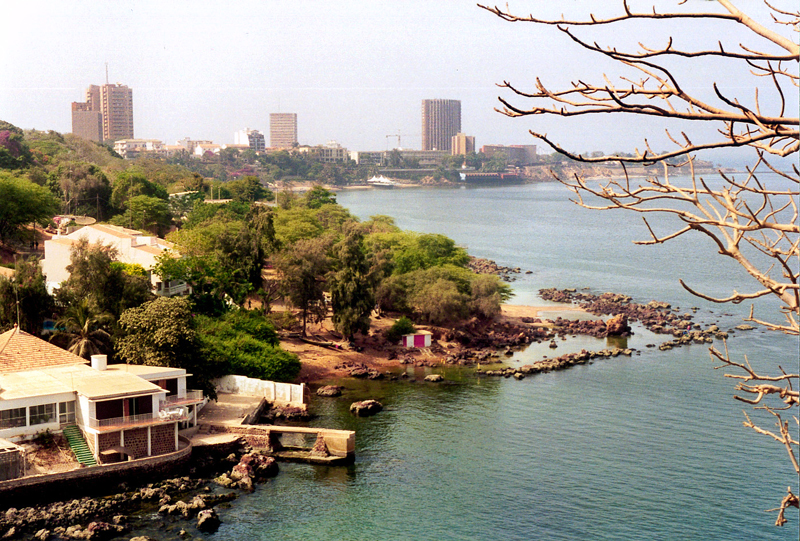Dakar is the capital and largest city of the Independent Republic of Senegal and one of the chief seaports on the western African coast. It is located midway between the mouths of the Gambia and Senegal rivers on the south-eastern side of the Cape Verde Peninsula and is the westernmost city on the African mainland. The city was founded in 1857 and became the capital of French West Africa in 1902. Dakar later became the capital of the failed Mali Federation, which existed only between 1959 and 1960.
Dakar (with the commune of Gorée) played a fundamental role in several different moments of world history: as a port for the slave trade of nations like Portugal, the Netherlands, and France, and as a territory to build a Free French nations stance against the Vichy government during World War II. Today, Dakar is considered part of the World Heritage cities.
Culturally, the city is becoming well-known for Dak’Art. Conceived as a celebration of literature, craft and visual arts in 1989, the Biennale has focused on contemporary African art since 1996 and has evolved into the largest show of its kind on the continent. Visitors, journalists and art world aficionados descend on this West African hub during the Biennale, with museums such as the Pompidou Centre and the Tate in London sending representatives.
Dakar is a Metropolis member: https://www.metropolis.org/member/dakar
Local Government Structure
In Dakar, the local government structure is complex, being a part of a multi-tiered administrative framework that includes the national, regional, and local levels. Dakar is not only a city but also one of the 14 regions of Senegal, and it is further divided into departments, which are themselves segmented into communes or districts. Each of these administrative units has its own elected officials and administrative personnel. At the local level, the commune, citizens elect a mayor and a municipal council who are responsible for local governance, including social services, urban planning, and public safety. The mayor plays a significant role in local development initiatives and works in conjunction with departmental and regional governing bodies.
Dakar on the use platform
Below are 3 initiatives being implemented by the City of Dakar that demonstrate effective metropolitan governance, sustainable citymaking and the localization of the SDGs.
https://use.metropolis.org/case-studies/building-sustainable-income-and-employment-opportunities
https://use.metropolis.org/case-studies/micro-gardens-in-dakar
https://use.metropolis.org/case-studies/municipal-finance-program
City profile
For a detailed profile on Dakar including population demographics, administrative structure, industry and economics, click on any of the above case studies and then select "City information".
Get Involved!
Join use in supporting the work of municipal governments and citymakers by sharing your local experience with our global audience. Upload your case study here.
